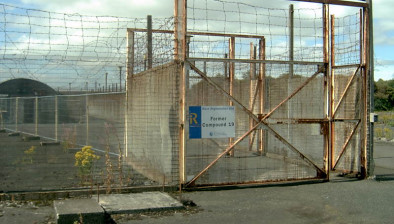UK: Call for changes for UK citizens travelling to EU to be clarified by Home Office

Fundamental changes in the movement of people to and from the European Union, which will come into effect next year, require urgent preparation and clarification, the House of Lords Justice and Home Affairs Committee has said.
In a letter published today to the Home Secretary, Priti Patel, the committee refers to two electronic systems that the EU is due to apply to visa-holders from next year.
According to the committee, the launch of the Entry/Exit System (EES) and the European Travel Information and Authorisation System (ETIAS), will affect both citizens and businesses and raise a wide range of logistical, legal, and political issues.
As well as a lack of public awareness of these systems, the committee has highlighted several other areas of concern, including in relation to data protection, assistance and accessibility issues, delays at borders for both private travellers and hauliers, the profiling of UK citizens, security checks and the prospect that some UK citizens will lose their right to travel to the EU.
Questions posed to the Home Secretary include:
- How much disruption does the Home Office expect in the follow-up to the launch of the EES and of ETIAS?
- What is the Home Office’s assessment of the level of preparedness of those who will be affected by the launch of the EES and of ETIAS?
- How will the system ensure that applicants are aware that they are being subject to profiling through the automatic comparison of their data to “standard profiles” of individuals deemed to represent a high illegal immigration or epidemic risk?
- What safeguards will ensure that ETIAS cannot be abused by EU and non-EU authorities to limit the freedoms of UK citizens?
- What safeguards will be introduced to ensure that confidential information will be protected?
- How much control will UK citizens have over the data collected on them by the European Union, on how it will be stored, and on the use that will be made of it?
- How does the Government intend to obtain guarantees that assessments for applicants that may represent a security, public health, or illegal immigration risk will be lawful and non-discriminatory?
Baroness Hamwee, chair of the committee, said: “In 2019 alone, UK residents crossed into the European Union close to 67 million times. When the EES launches residents will be subject to queues and delays. ETIAS will likely require UK citizens to submit detailed application forms followed by a lengthy application process, the outcome of which may not be known immediately.
“This letter arises from our concern over how little information is available: it is not at all clear how these systems will work, what impact they will have, or how many are aware of them.
“By design, the EES and ETIAS will collect and store personal data on UK citizens. To assess whether the applicant poses an illegal immigration or high epidemic risk, we understand that ETIAS will apply “screening rules” to profile applicants. Some UK citizens will likely be unable to get permission to travel to the EU.
“My committee has today asked the Home Secretary to provide further information and clarification on a range of issues. Without adequate preparation, essential support and safeguards may not be in place in time for individual travellers, which may prevent them from booking holidays at the last minute or from attending an important event, such as a funeral, a job interview, or a religious ceremony.
“We hope that the questions we have posed today can provide a framework for the Home Office to consider the multiple issues involved in the launch of these systems and assist a smooth transition with minimum disruption.”










